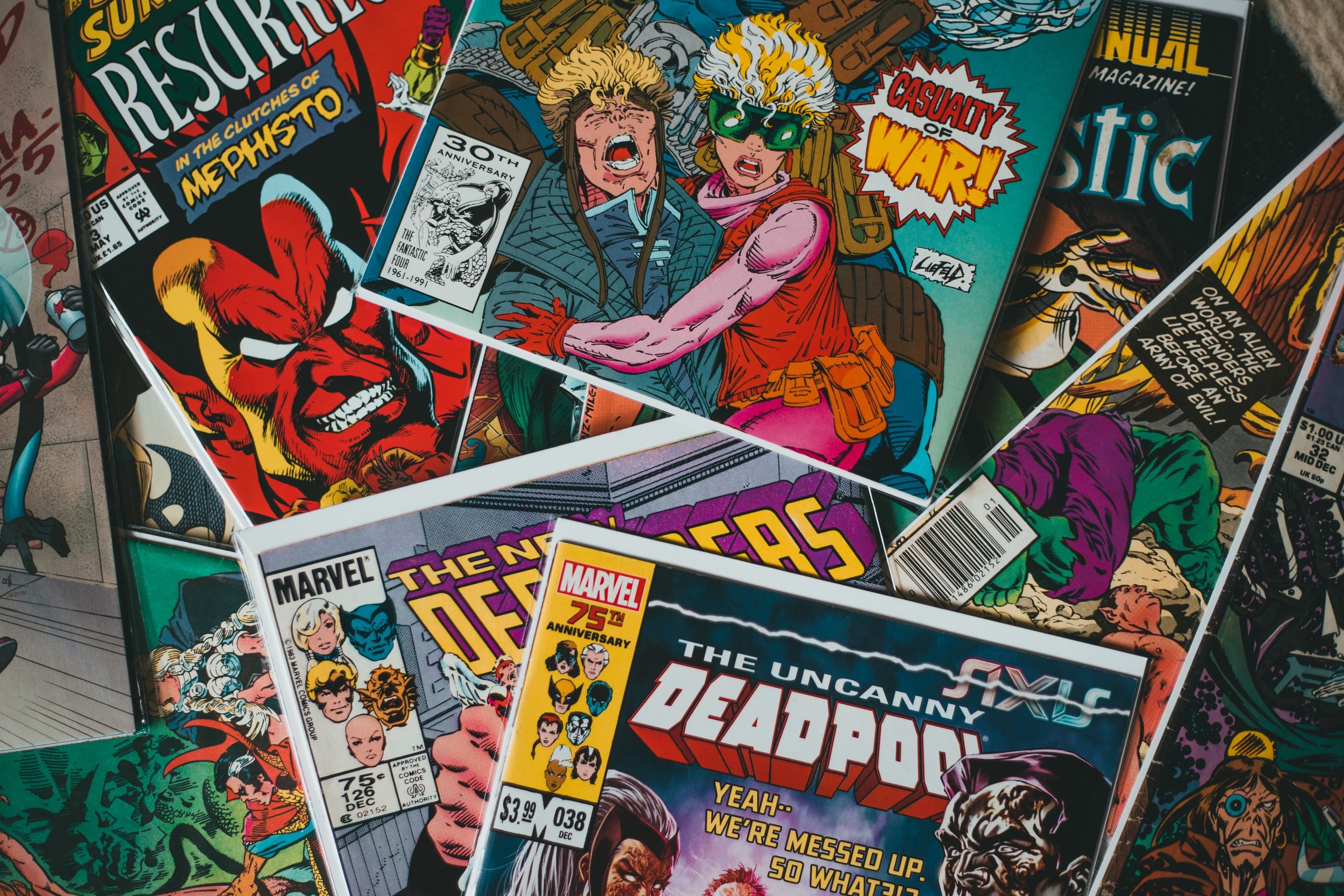Comics civil war: the verdict is in
The industry has been decimated by companies turning on consumers to score political points.
In 2016 a civil war in American super-hero comic books broke out. Fans complained about the increasing number of progressive political points, peculiar changes to characters and a decline in standards of writing and art. Although it is common for superheroes to be altered – mainly through new fictional characters taking on the roles of particular heroes – there seemed a wave of race/sex-bent characters, all leaning towards “diversity”, beginning in 2014. Heterosexual characters were suddenly outed as homosexual. There was a dramatic diminution in heterosexual romance.
A deep antagonism grew up between creators (and editors) and readers. Avowedly leftist professionals took to task critics of changes, damning them as sexist, racist, homophobic, transphobic, white nationalist and other handy epithets. This happened even if criticisms were mild and fair. The unedifying spectacle of seasoned professional creators hurling obscenities and unfounded accusations at members of their readership became a daily event on Twitter. Needless to say, many dismayed long-time fans were minorities themselves, some of them left/liberal politically.
Max Bemis (writer, Marvel) declared: “By the way, if you’re looking for “SJW” undertones to Moon Knight they’re not there. That said, I f****** hate you personally.” (5.40 AM, 1 December 2017) Tom Brevoort (editor, Marvel): “Sad that most @Marvel fanboys are misogynist crybabies who fear strong gals like America Chavez, Unbeatable Wasp, Thor, & Squirrel Girl.” (1.49 PM, 5 August 2017) In response to a decision by the Trump administration on trans issues, transsexual Magdalene Visaggio (writer, DC Comics, Marvel) wrote, “I AM DONE WITH THIS. // so F*** YOU. F*** CIS A**HOLES. F*** YOUR BULL****. GET READY FOR A BASEBALL BAT TO THE TEETH.” (5.13 PM, 27 July 2017) [The quotes preceding had asterisks put in by Bournbrook] None of these individuals (or most of the others writing similar things) were disciplined for these posts by their employers.
YouTube commentators started to call out creators and companies for this. Initially, it was a case of “SJW Marvel”, but soon Marvel’s main competitor DC Comics became just as susceptible to leftist identity politics. By the summer of 2016, full-scale hostilities had ensued between increasingly woke companies/creators and their readerships. Resistance to activist creators – which included a number of dissident creators, forced out of mainstream companies – formed a loose alliance called Comicsgate. Some of the creators, such as Ethan van Sciver, ran crowdfunding campaigns to sell their own books. Some of these were wildly successful, raising millions of dollars.
In my book Culture War, I recorded the origins and early skirmishes of Comicsgate. Since then, the industry has been decimated by companies turning on consumers to score political points. The range of books published has been cut; sales have declined dramatically; relaunches and reboots have entered a cycle of increased rapidity, which has disconnected readers from stories. Predatory practices have become rampant. One is the practice of publishing variant covers. This is when a company produces a rare collectible cover for a book, one that is only available to retailers which bulk buy copies in regular covers. The stores are then left with dozens of (unreturnable, unrefundable) copies no buyers want. Such practices inflate sales figures. Suspension of publishing and distributing comics during initial months of COVID lockdown crushed comic-book shops already failing because of falling sales of woke comics.
There have been mass lay-offs of editors, staff and freelance creators. Hiring unqualified, untalented creators – on the basis of demographic characteristics – led to a sharp drop in quality. There is now an unspoken policy of segregation at the top companies, where writers must have the same characteristics as the characters they write or draw. Creators now market themselves through their identities. Writer Vita Ayala has her Twitter profile description as “afro-Puerta Rican, trans non-binary”. A statistically improbable number of new writers – in an industry built on selling action stories to men – are female/black/lesbian/non-binary/disabled/neurodivergent. A running joke among readers is trying to guess which established writers are going to embrace a hitherto unapparent bisexuality or racial-minority lineage. Diversity credentials are essential to maintain work in this shrinking industry.
Over recent years, predictions of commentators on the side of Comicsgate have been vindicated. The industry is in a state of freefall. The dictum “go woke, get broke” has been borne out by the American superhero comic-book industry. Only cross-subsidies keep these failing businesses alive. Parasitic editors and freelance creators take no care over the fate of their firms, as their first loyalties are to their ideologies and Twitter audience. Now, that income and attention is drying up. In a now deleted tweet (visible at timestamp 10:45 in this video), Visaggio admitted that reduction in responses had reduced the appeal of Twitter posting. “Sometimes I miss my online clout, having not been a reliable Twitter user since summer ’19, but mostly I don’t. it was nice commanding 500 likes on my average post, but the price in time and stress and misery isn’t worth it.” (7.37 PM, 12 April 2022)
One leading critic of Comicsgate is artist-writer Erik Larsen. Even Larsen recently admitted that the way publishers have made radical changes to characters is objectionable. This was a principle complaint of Comicsgate. Another opponent of Comicsgate, artist Bill Sienkiewicz, came out as opposed to diversity-driven changes to J.R.R. Tolkein lore in the forthcoming Amazon TV series The Rings of Power. Again, it was for voicing such criticisms that Comicsgate and the fans of sci-fi franchises (who called themselves The Fandom Menace) were attacked as hateful bigots. Now that old-guard professionals see their own creations – and material they love and feel protective towards – as inevitably doomed to the diversity agenda, honest opinions are emerging.
Six years on, the verdict is in: the most die-hard opponents of Comicsgate, and the other fan movements, admit the critics were right all along.

